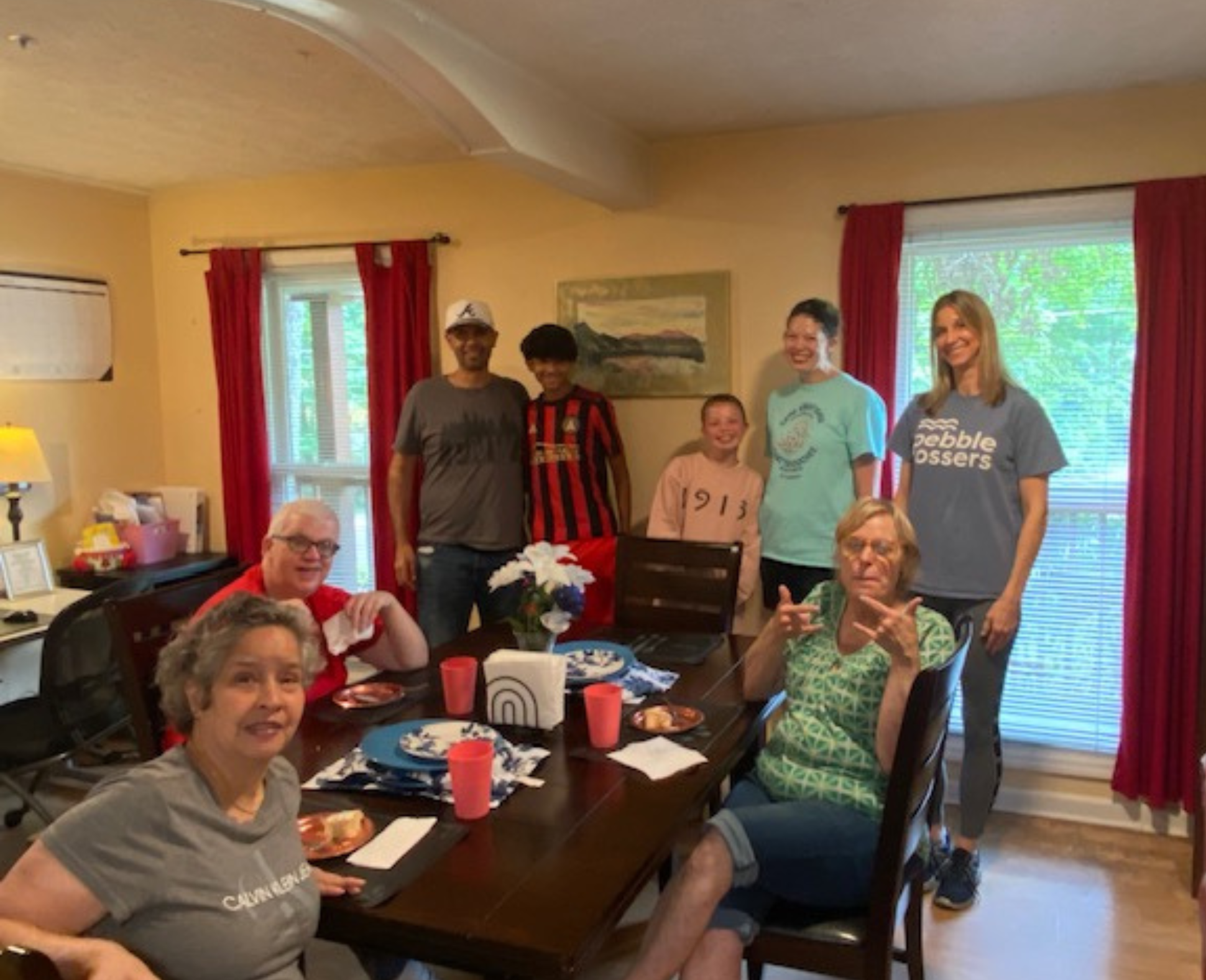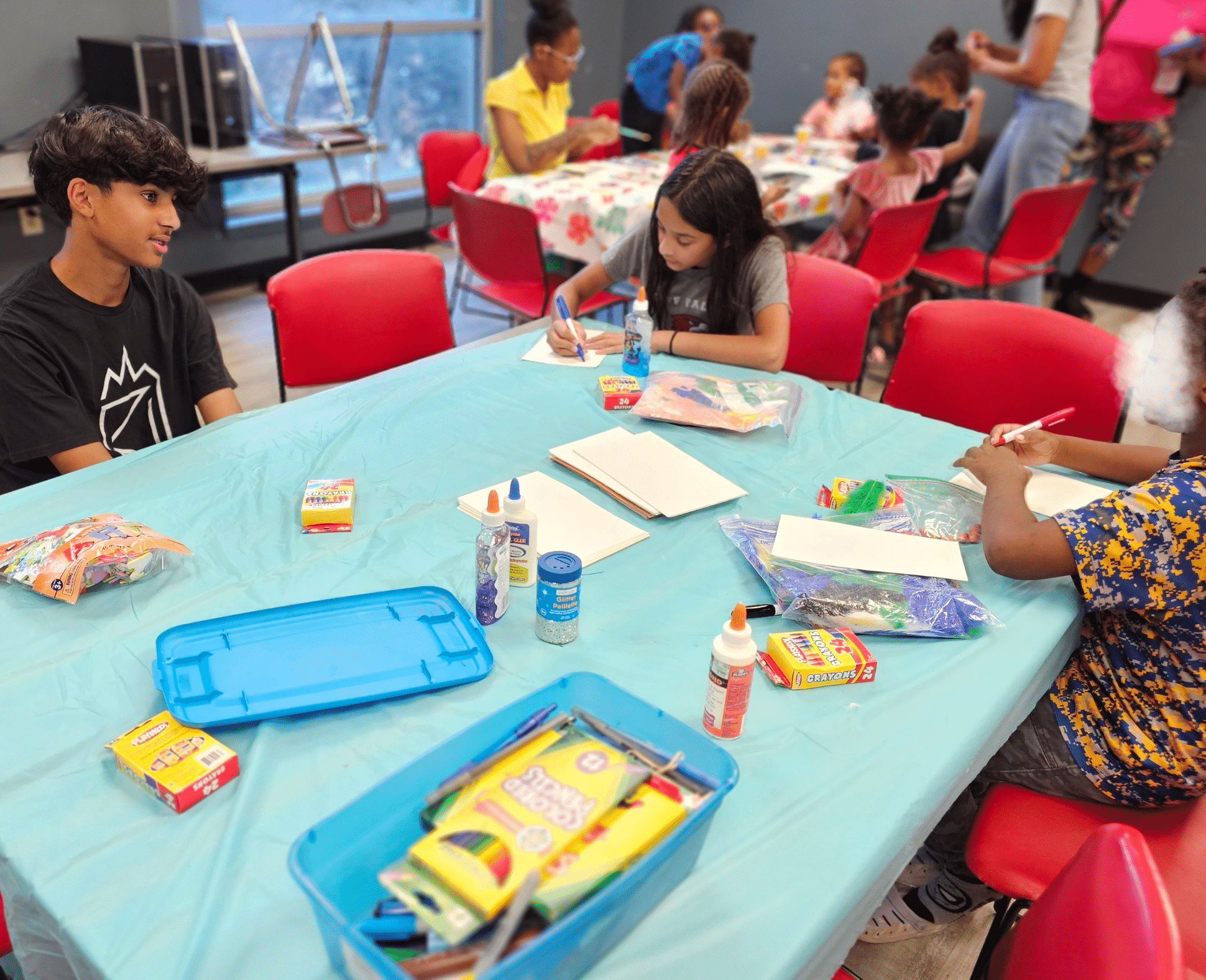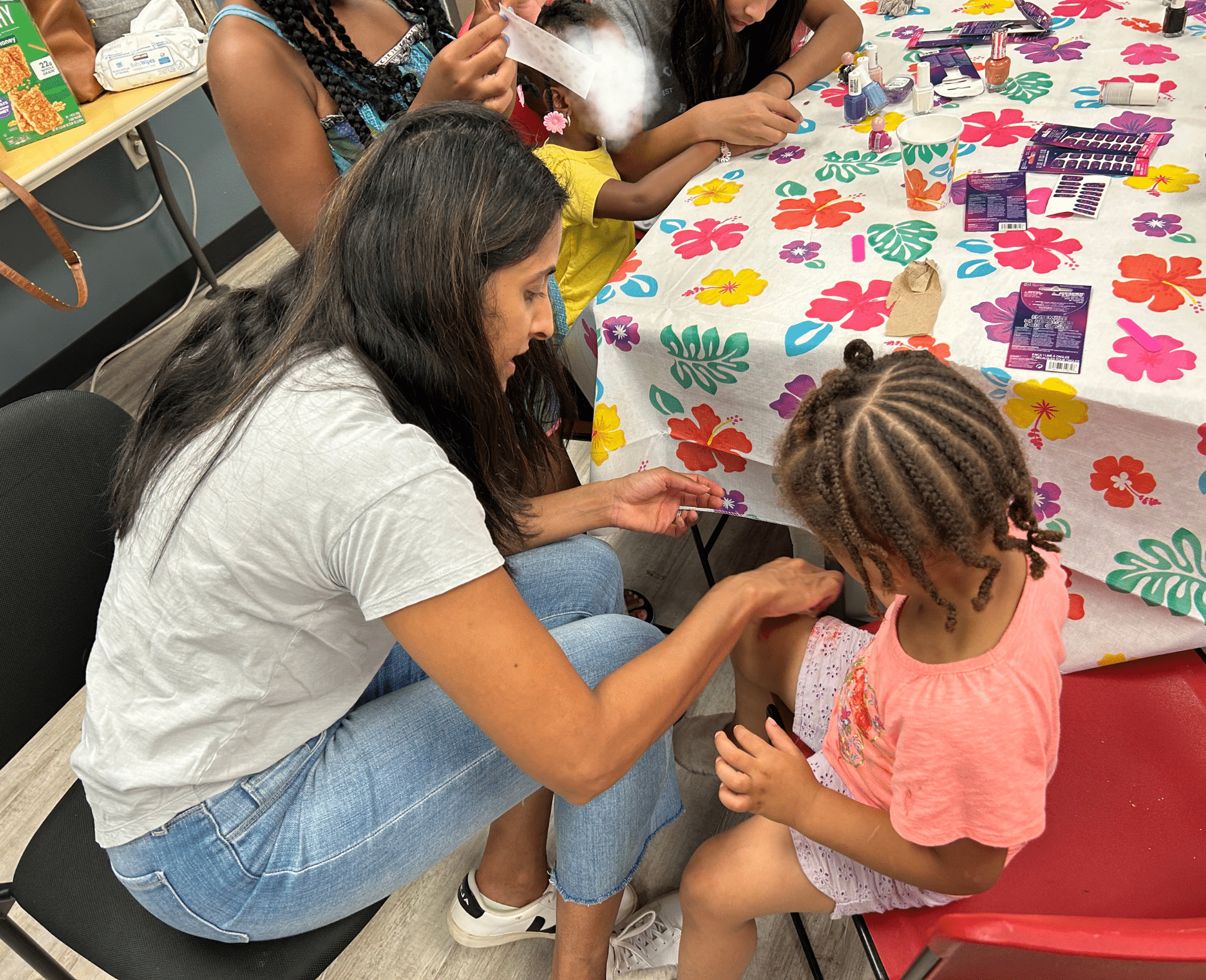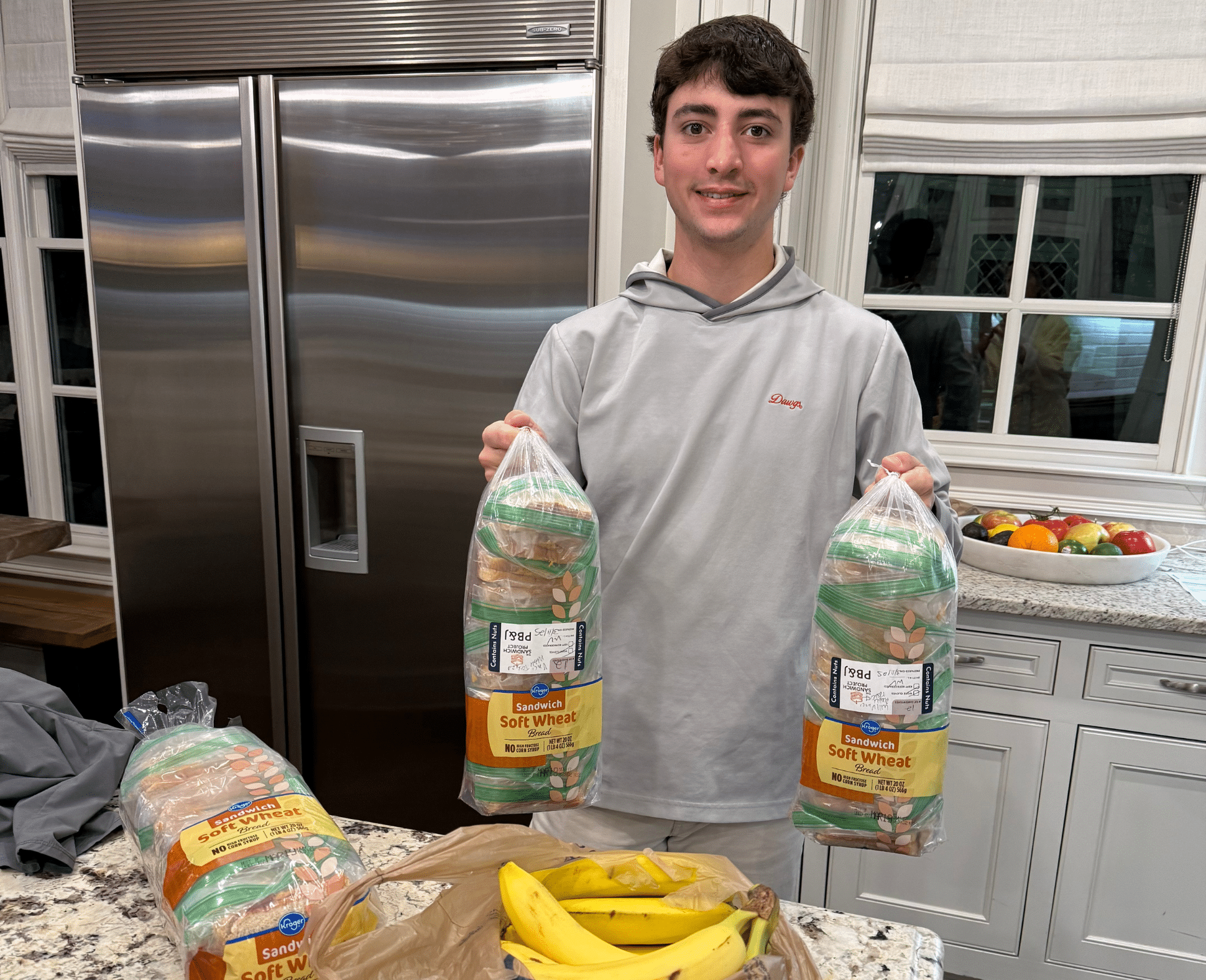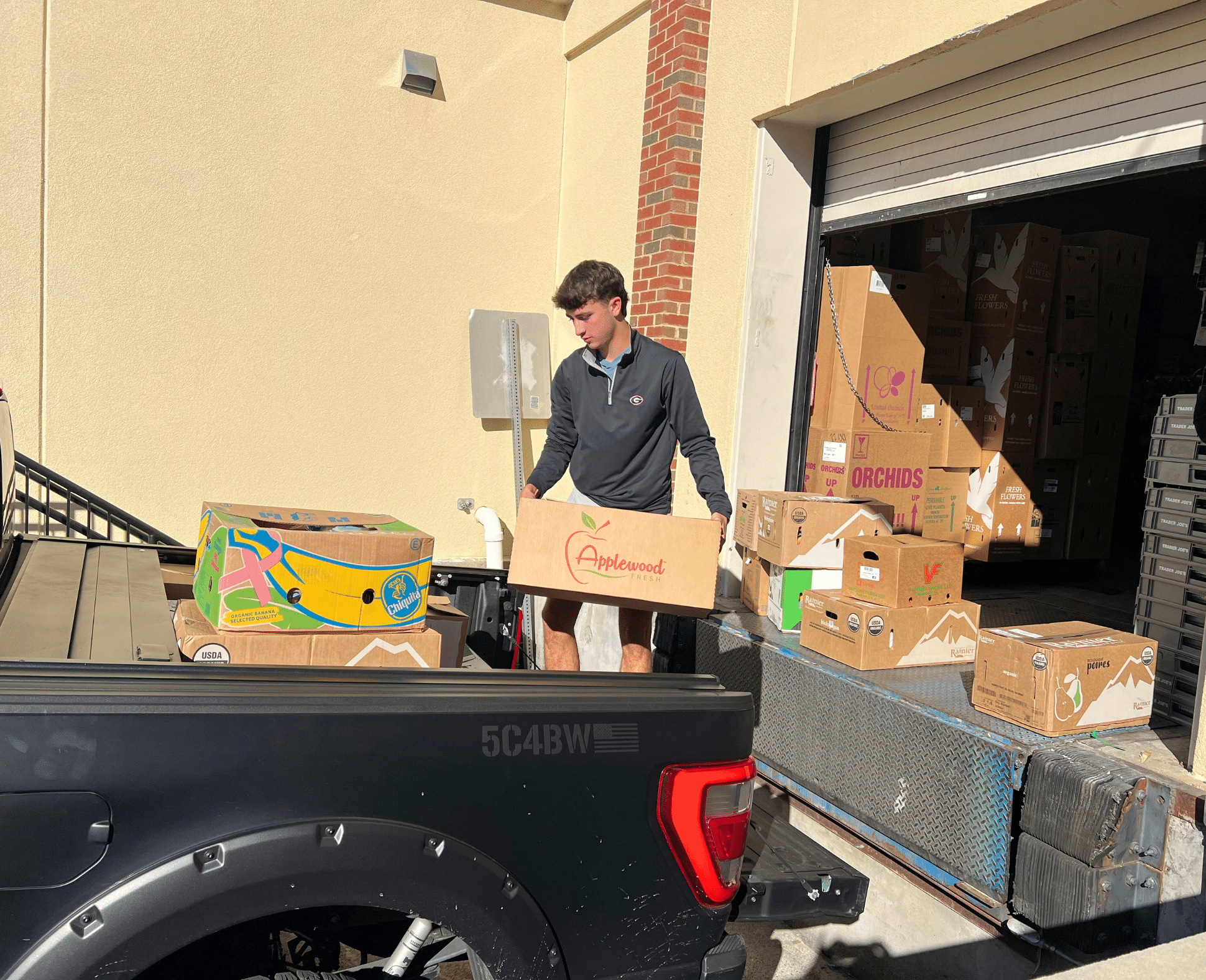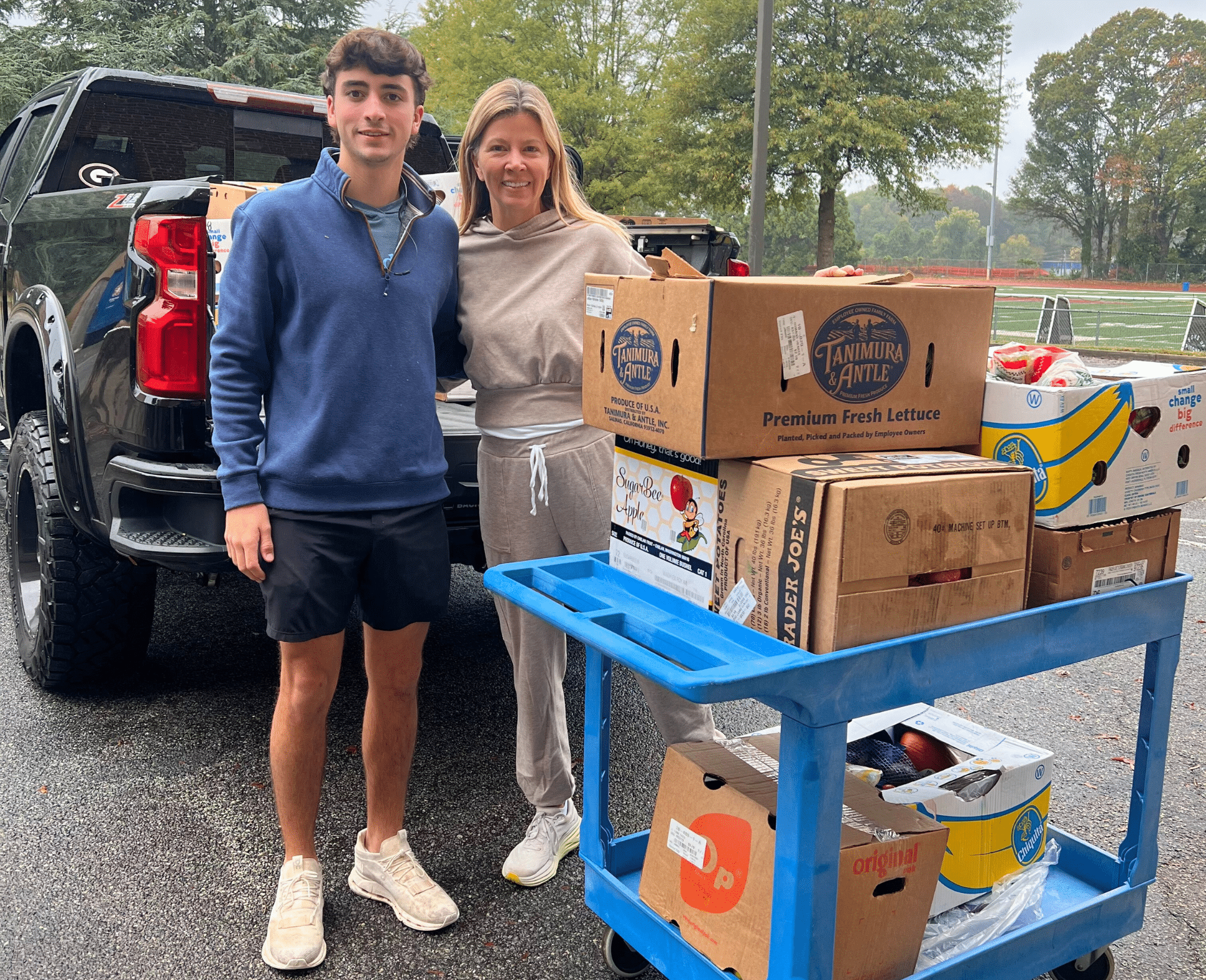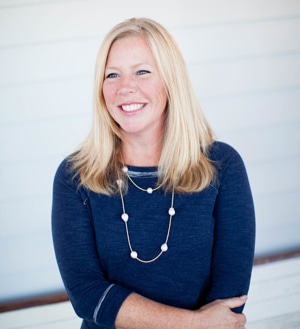April isn’t just about spring showers and blooming flowers; it’s National Volunteer Week! This week is a vibrant celebration of the everyday heroes who dedicate their time and energy to making a difference, particularly to a certain group of people who don’t get much spotlight in the volunteer scene: youth!
Youth bring fresh perspectives, boundless energy, and a willingness to learn that injects a powerful spark into any cause. Whether it’s planting trees for a greener future, organizing a book drive for children impacted by foster care, or mentoring younger students, young volunteers are making ripples in their communities.
This National Volunteer Week, we’ll be highlighting the amazing work our Teen Leadership Program (TLP) members have been engaged with since August!
Read more about their impact on our interview with Sanaa and her experience of leading the group’s Environment + Park Clean Up Project across metro Atlanta.
Q: What is your group project about and what made you want to create your project?
A: Our project is about helping the environment stay clean and looking after the wildlife that is being affected by the immense pollution in our parks. Each of us in this group feels very passionate about doing our part for the outdoors, as it is often overlooked in the realm of community service.
We thought giving our time towards the parks would not only be a service opportunity but also allow us to spend some time outdoors, as well as gain an appreciation for all that nature has to provide. Because our group is in high school, we don’t get to spend much time outside, so we were very fortunate to be able to work on an outdoor project.
Q: What skills did you gain or develop as a teen leader, and how did you apply those skills to lead your project?
A: Communication is a skill that I have been working on this year in TLP, and it is something I wanted to exercise during our project. I implemented this in our project by being the leader of this service group, creating a group chat, and talking with our group regarding the specifics of our project. This has allowed us to create a viable plan and execute it in a timely manner.
We would not have been able to be as productive if it weren’t for the time we took to talk to each other and work through the scheduling problems we were facing.
Q: What challenges did you encounter while working on your project, and how did you overcome them?
A: One big challenge we faced during this project was finding a time that would work for everybody so we could clean up a park together. It was my goal to find time for at least one park cleaning that our whole group could do together as a bonding experience as well as improve communication for this project. Unfortunately, we were unable to find a date and location that worked for everyone, given there are 9 people in our group. Instead of doing this project together, it was more beneficial and effective if each of us did it separately and accounted for the amount of trash that each one of us picked up.
Not only was this more effective, but I feel it was better in the long run because we were able to hit nine times more parks than we would have if we had done this project together. I see that as an accomplishment because we were only aiming for a couple of parks at the beginning of this project but ended up cleaning way more than that.
Q: Tell us how the TLP supported your goals as a teen leader and what your next steps are after completing this TLP year.
A: The TLP program has taught me to prioritize finding myself and the importance of knowing your strengths and weaknesses before you go out into the real world. I have realized the importance of knowing yourself before you try to face any challenges because only then will you fully be able to recognize all of your capabilities.
I would love to be a part of TLP next year and maintain my leadership role as a student advisor, as that has helped me focus on leadership skills that are useful in my personal and educational life.
Q: Describe a time when you felt really proud of yourself as a teen leader.
A: I always feel proud when I recognize I can incorporate the skills that we discuss in our TLP meetings into my every day life. I feel that I have a lot more to learn about myself and developing these skills, especially in high school, can only benefit me in the future. For example, communicating with our service group was a major factor that contributed to the success of our project. Additionally, I have noticed that my communication with my friends outside of TLP has changed to become more effective, and this helped me in my high school journey.
Even while preparing for interviews, I feel I can express myself better and clearly answer each question to effectively communicate my feelings regarding the topic.
Q: In honor of Global Volunteer Month, who inspires you and why?
A: My entire family inspires me so much. My parents are so loving and kind, and I aspire to be like them. The way they carry themselves and their perseverance through any obstacles thrown at them have shown me what it means to stay vigilant and strong.
My nine-year-old sister inspires me as well. Being so young, she has already found a passion for advocating for substitutes for plastics to mitigate the health effects that microplastics have on the environment, wildlife, and us humans. She has taught me that no dream is too little and has encouraged me to want to make a difference in my future.
Q: Imagine you’re giving a TED Talk about a leadership lesson you learned. What’s the title and your main takeaway message?
A: To me, being a leader is being aware of everyone’s skills and weaknesses and knowing when to utilize them best. Having a vision of who can do what best and how to execute that is crucial for the group’s success. For example, during the environmental service project, I recognized that the most efficient solution to our problems was for everyone to carry out the project independently. Not only would this solve the problem, but this would also amplify the effects we were trying to have on the environment by cleaning up 10+ parks. I also understood that the final presentation, which would explain the purpose of our project to the rest of the TLP members, would be most efficiently executed if everyone was involved in the process, and it was.
I feel this was part of the reason why we were able to execute the project even better than we had planned and create a presentation, which all of us agreed with.
Join the Teen Leadership Program!
Applications to join the 2024-25 Teen Leadership Program are open to all rising 9th-12 graders in the metro Atlanta Area. Learn more about how teen leadership can activate positive change in their world and apply today!
We are looking for advisors ages 22+ to serve as mentors/positive role models for the program. Interesting in helping teens? Contact Earline at earline@pebbletossers.org for more information.

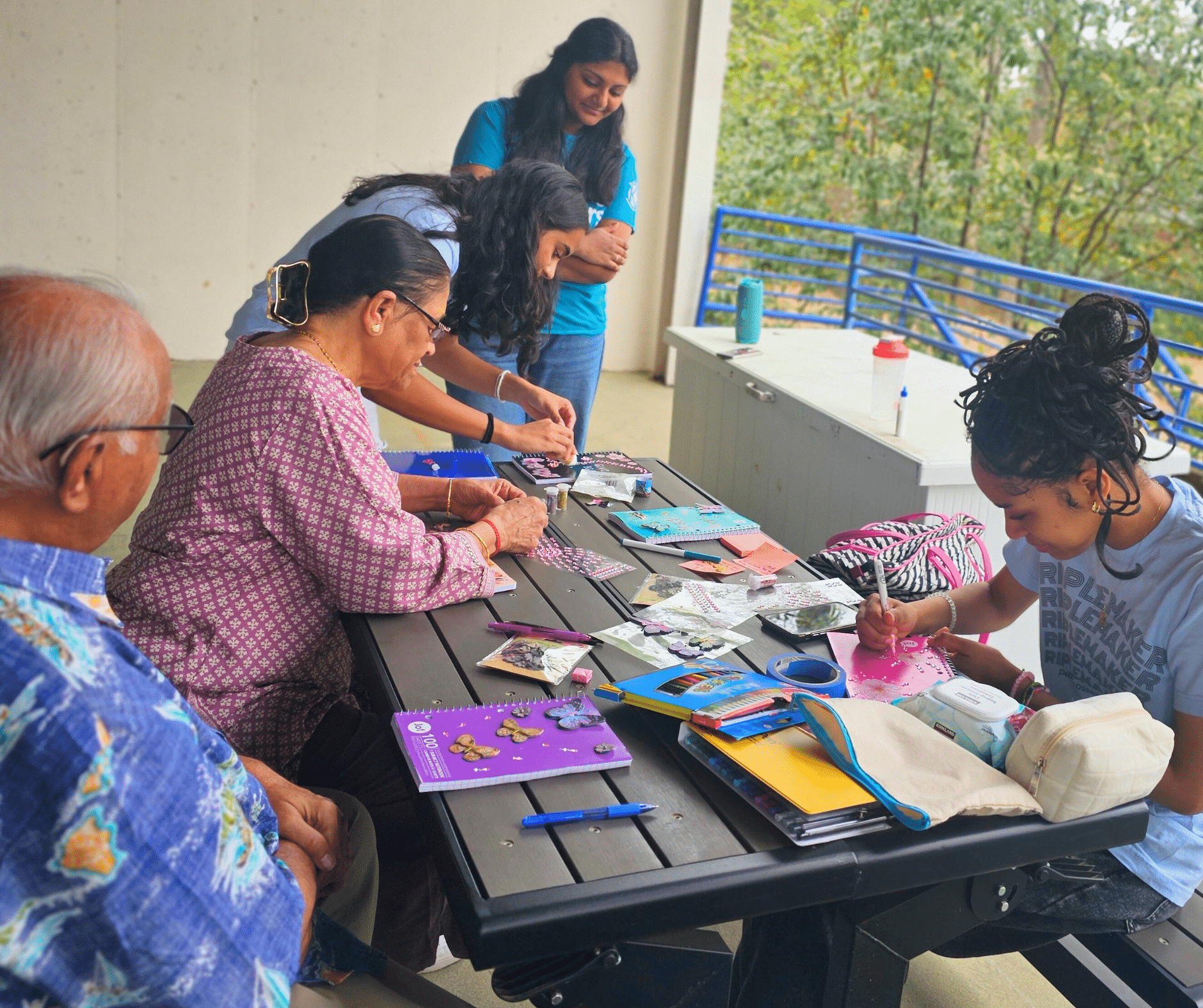
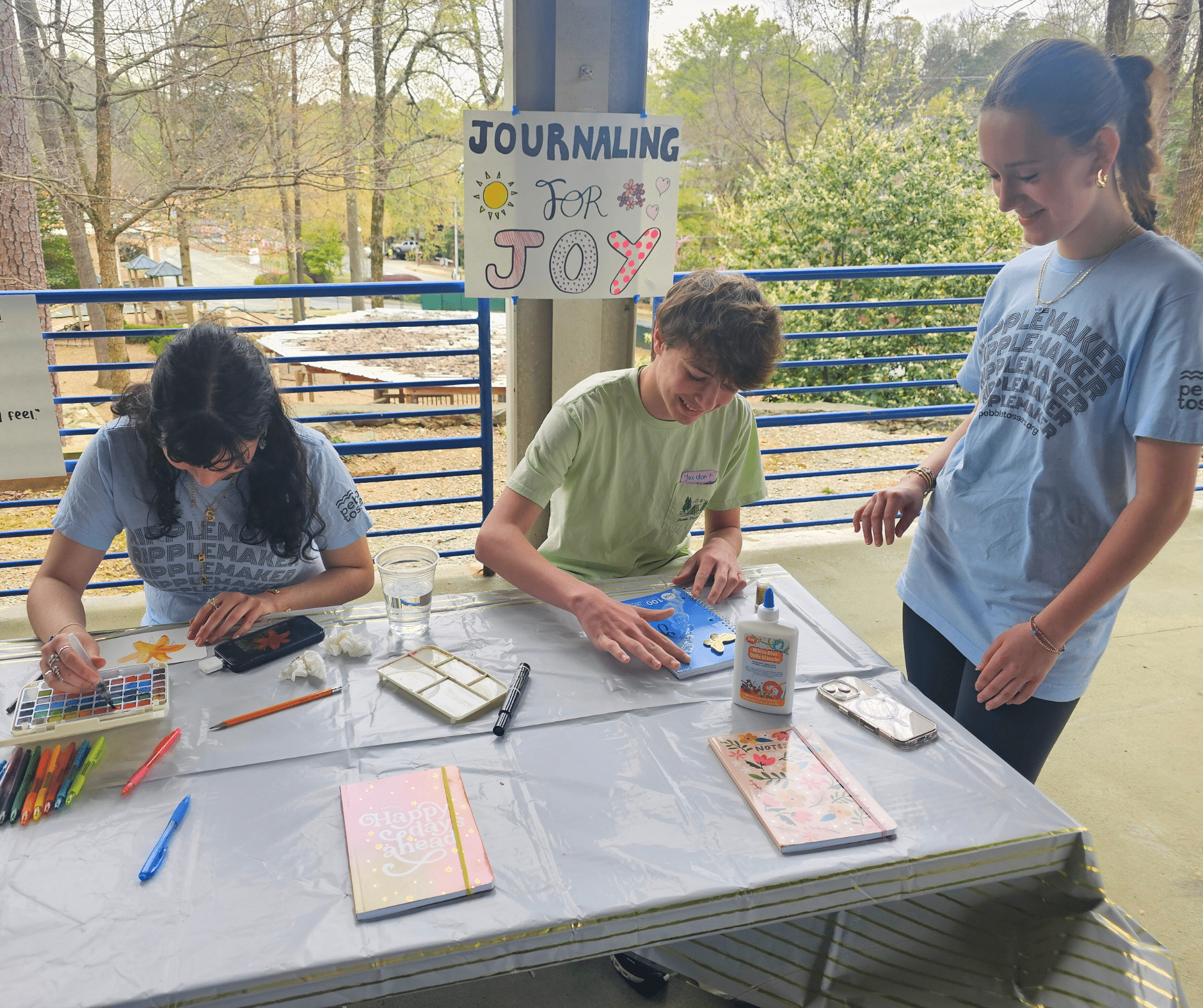


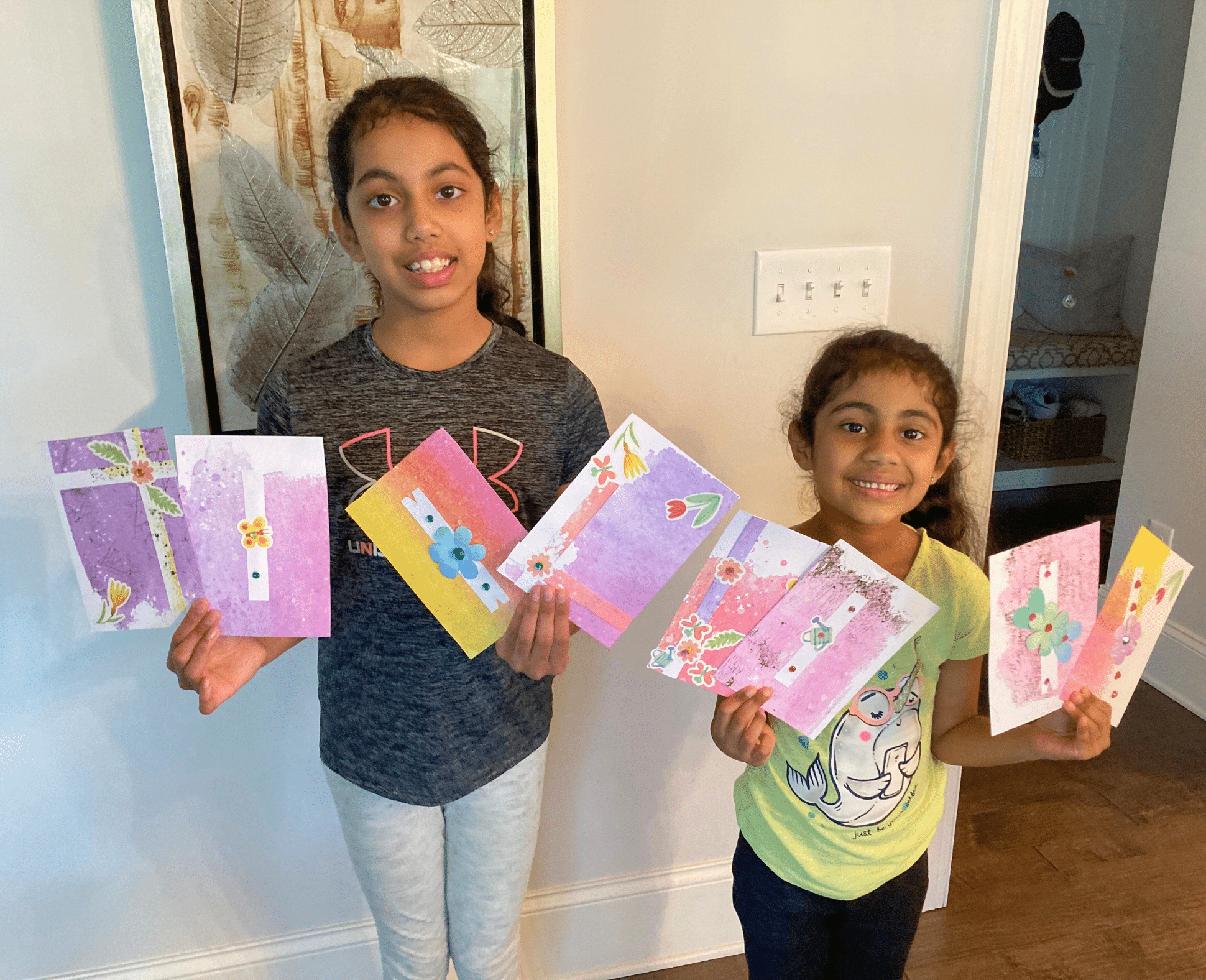 Everyone starts somewhere! How did you get into volunteering?
Everyone starts somewhere! How did you get into volunteering?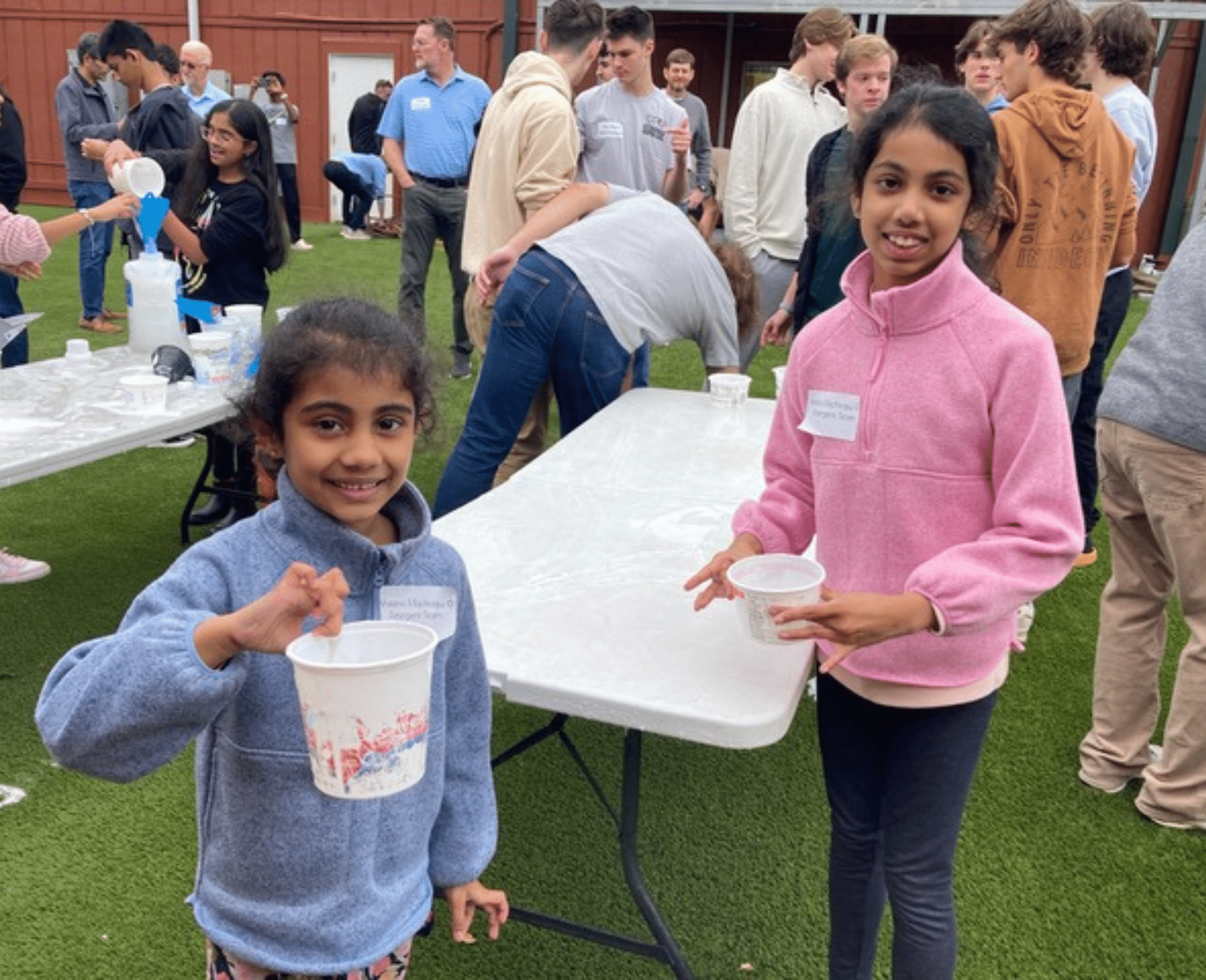
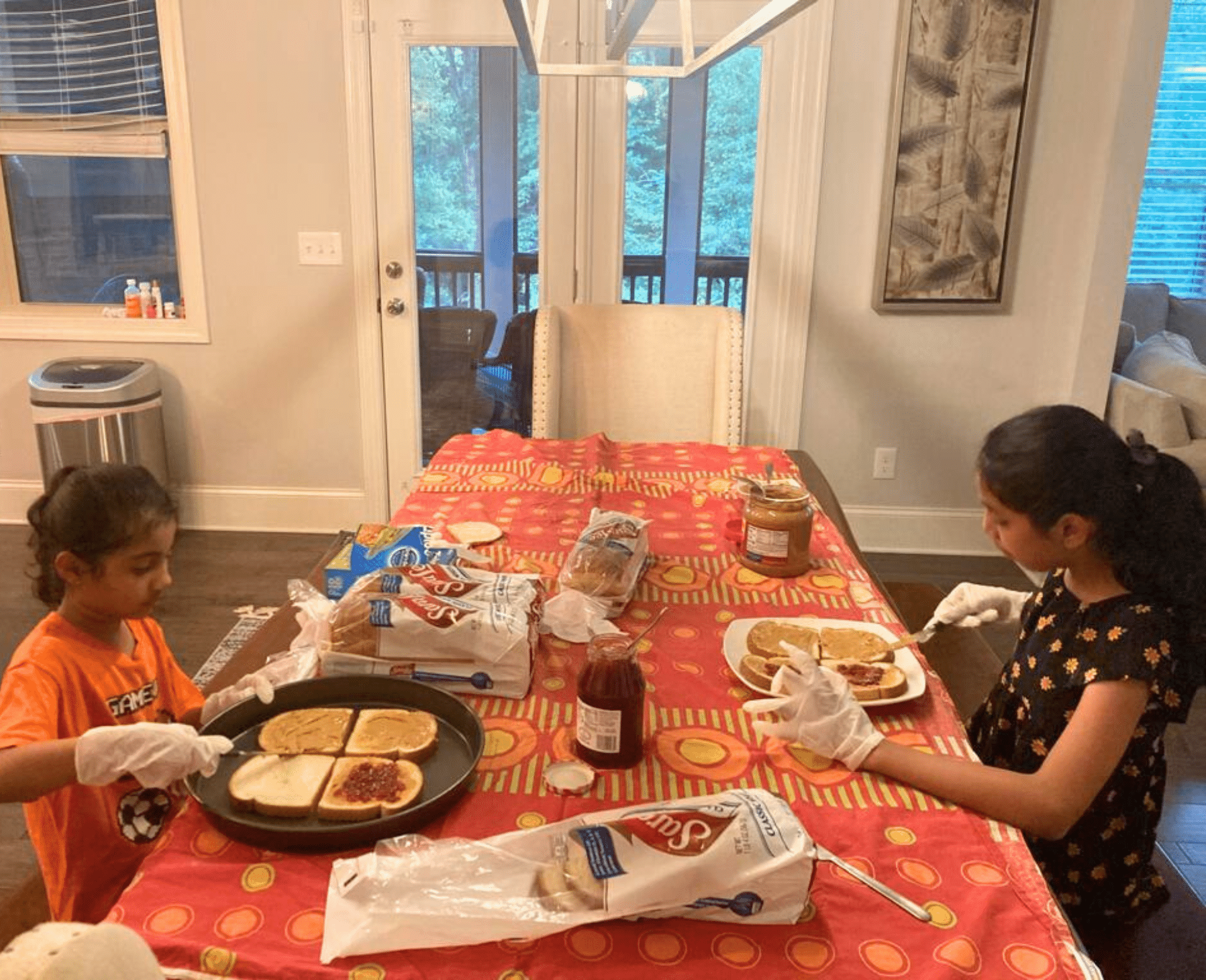
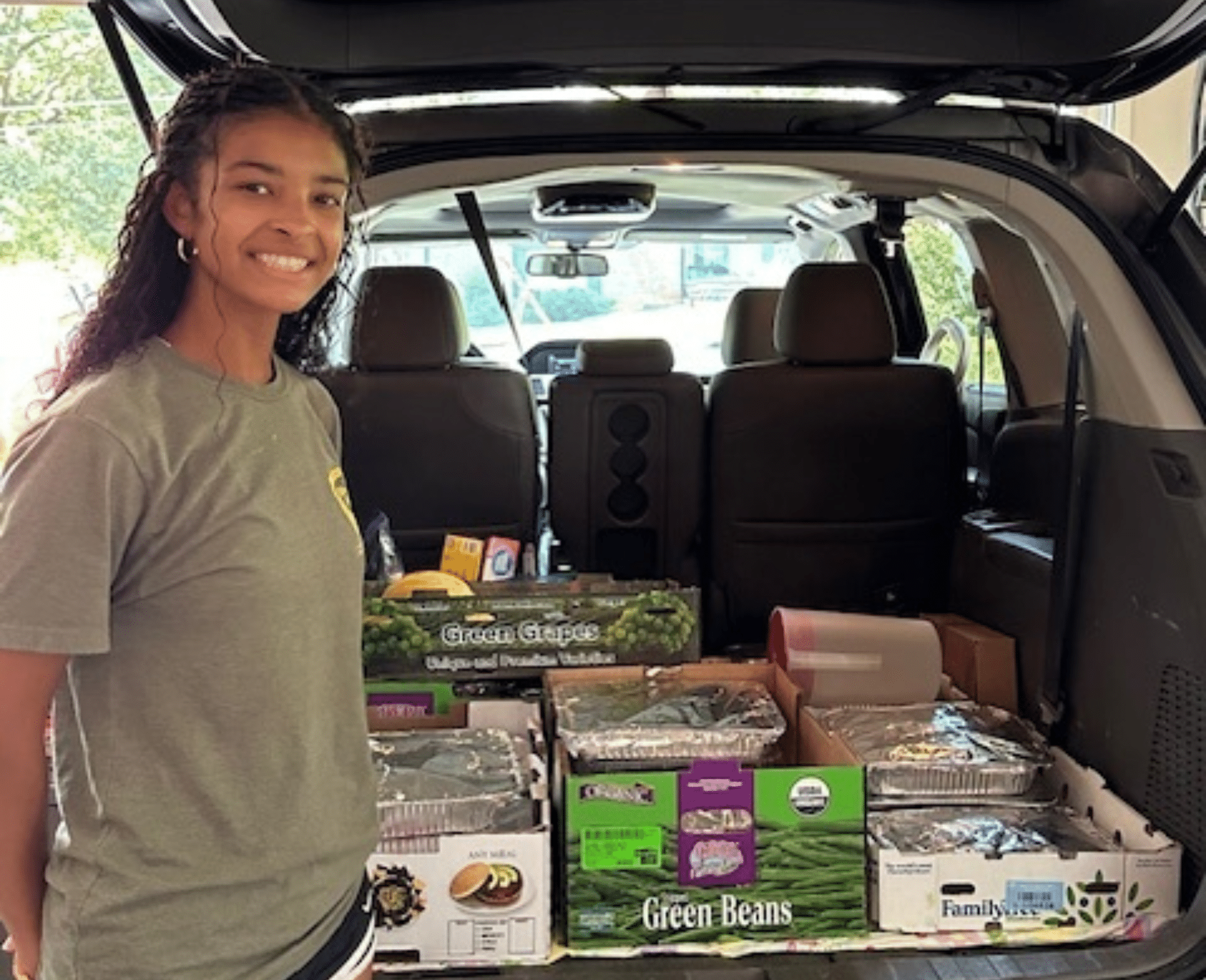
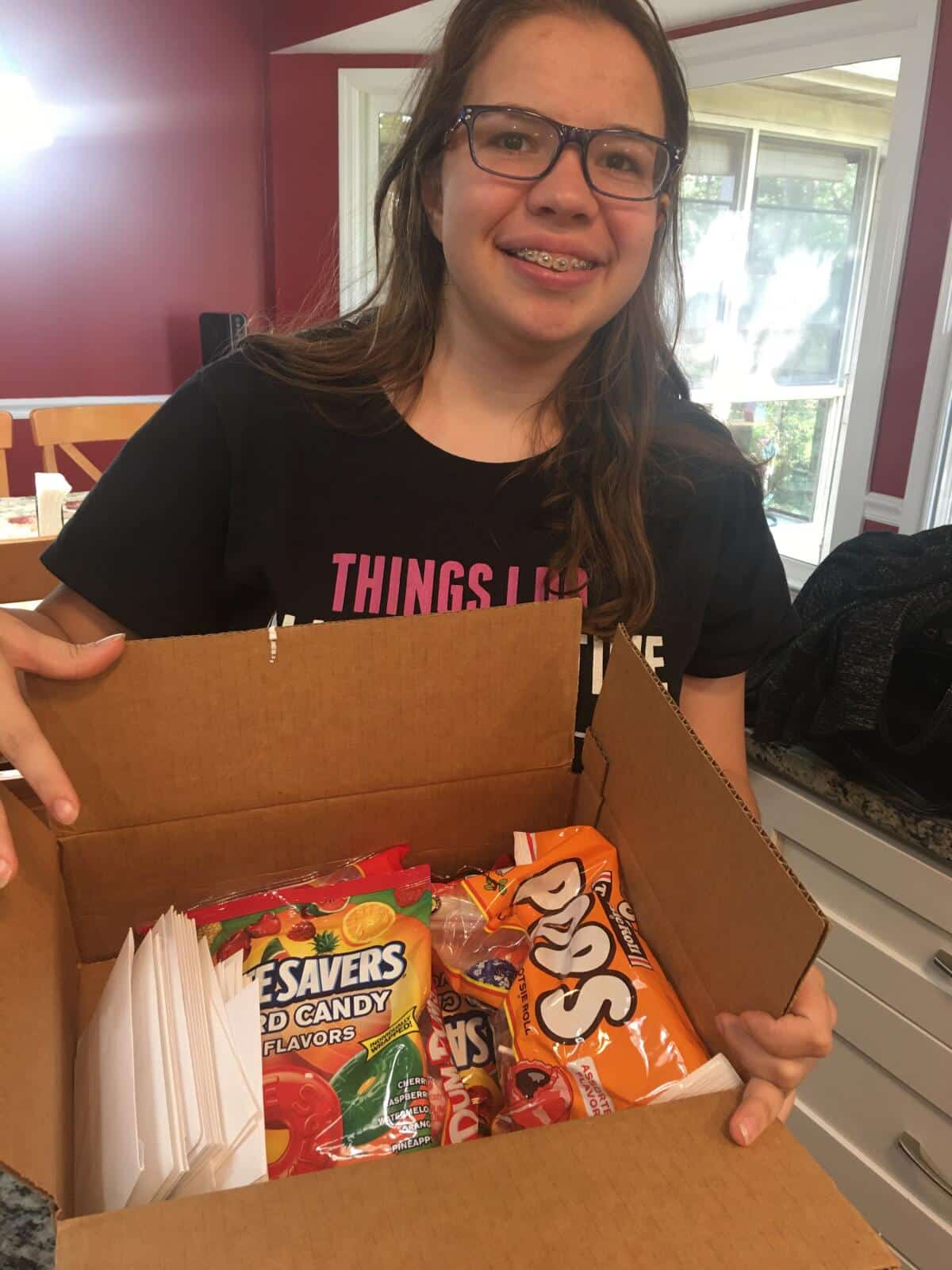
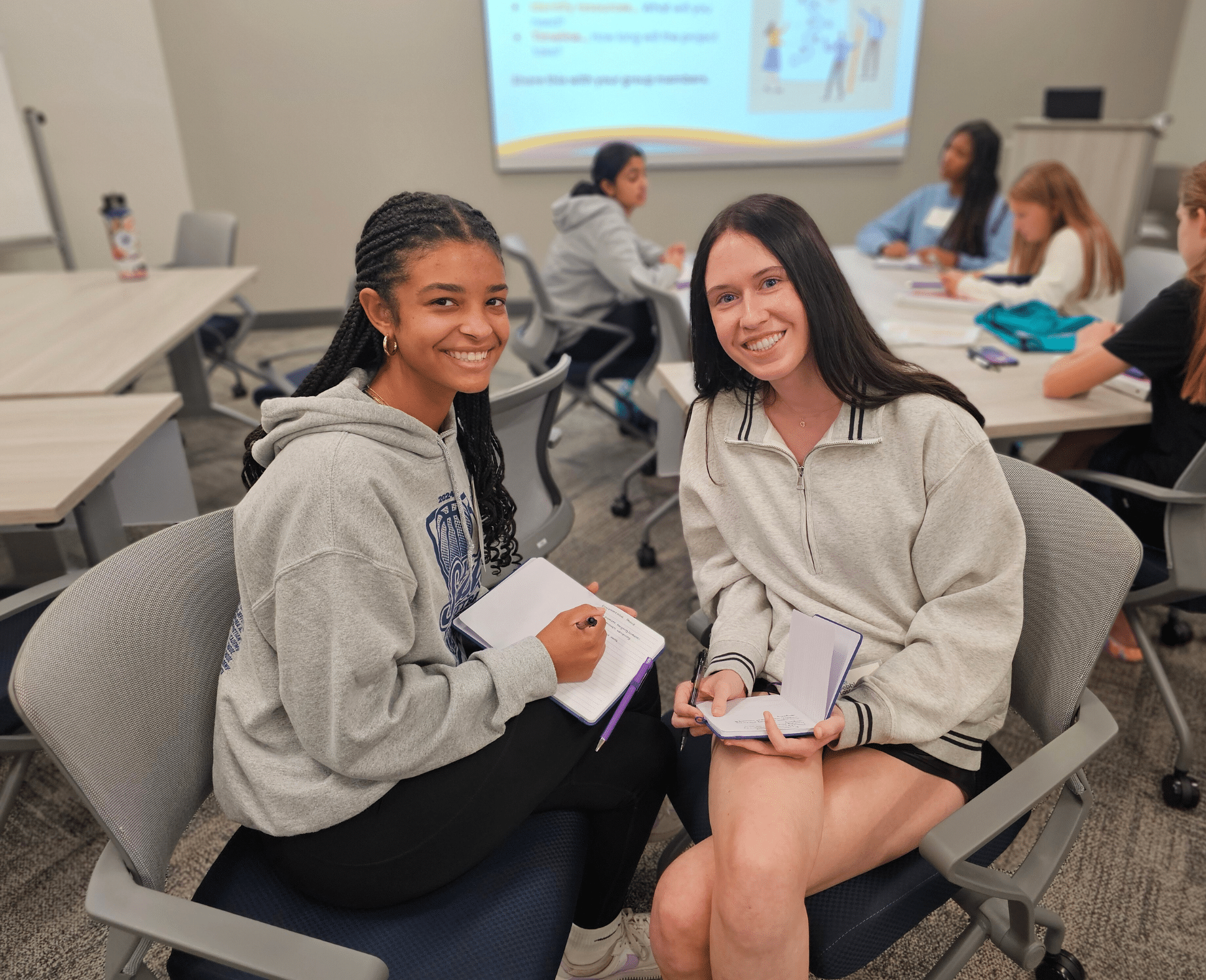
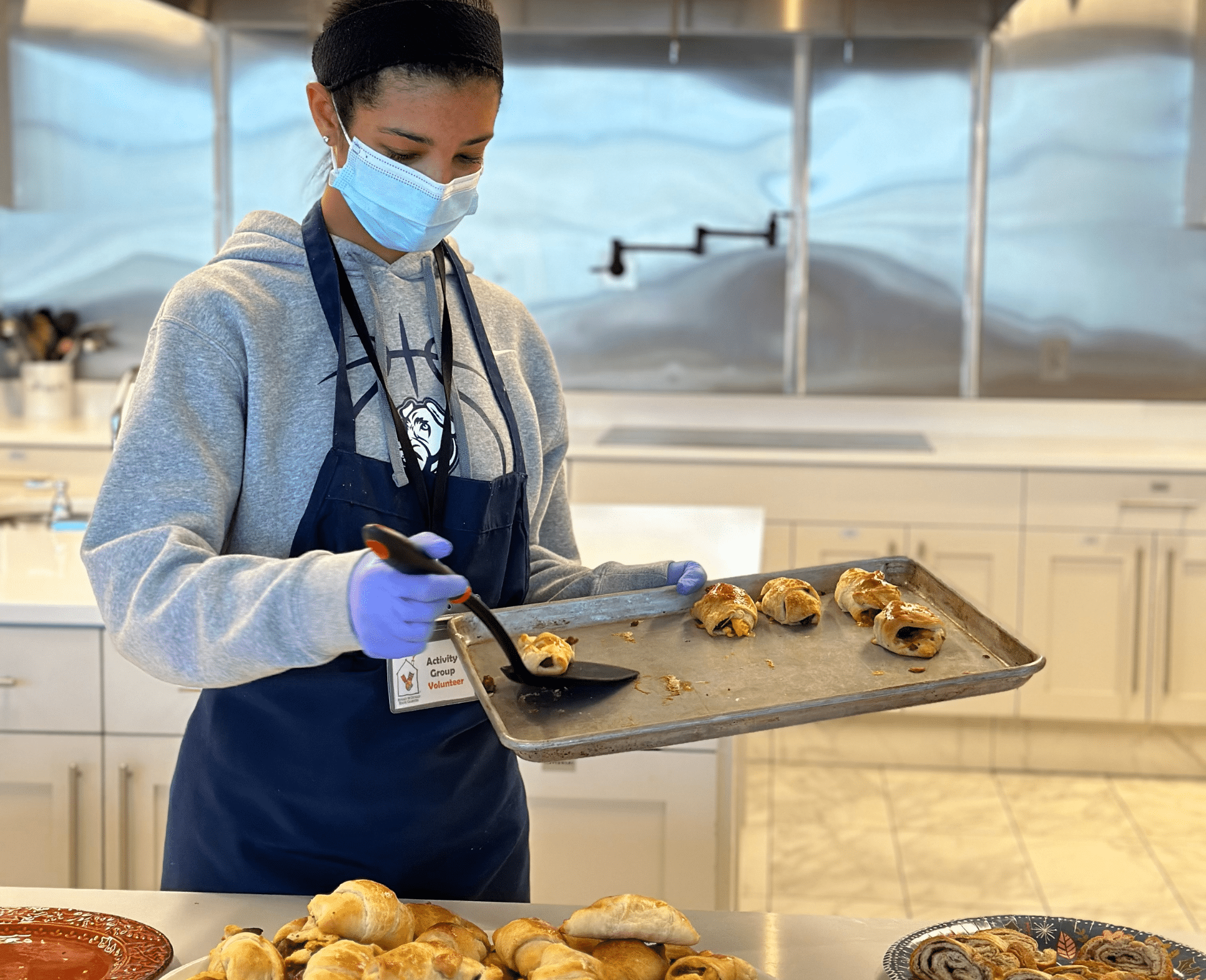
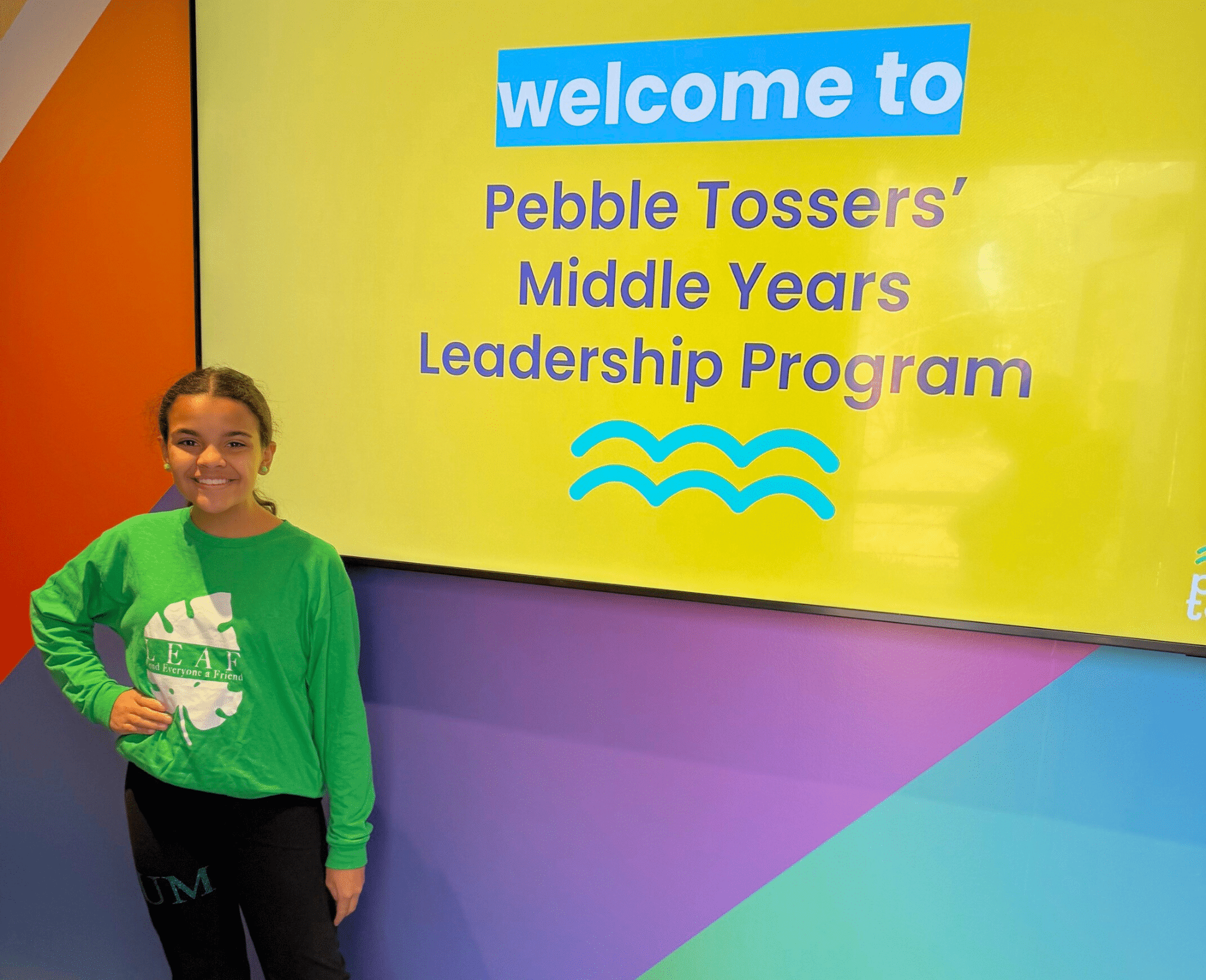
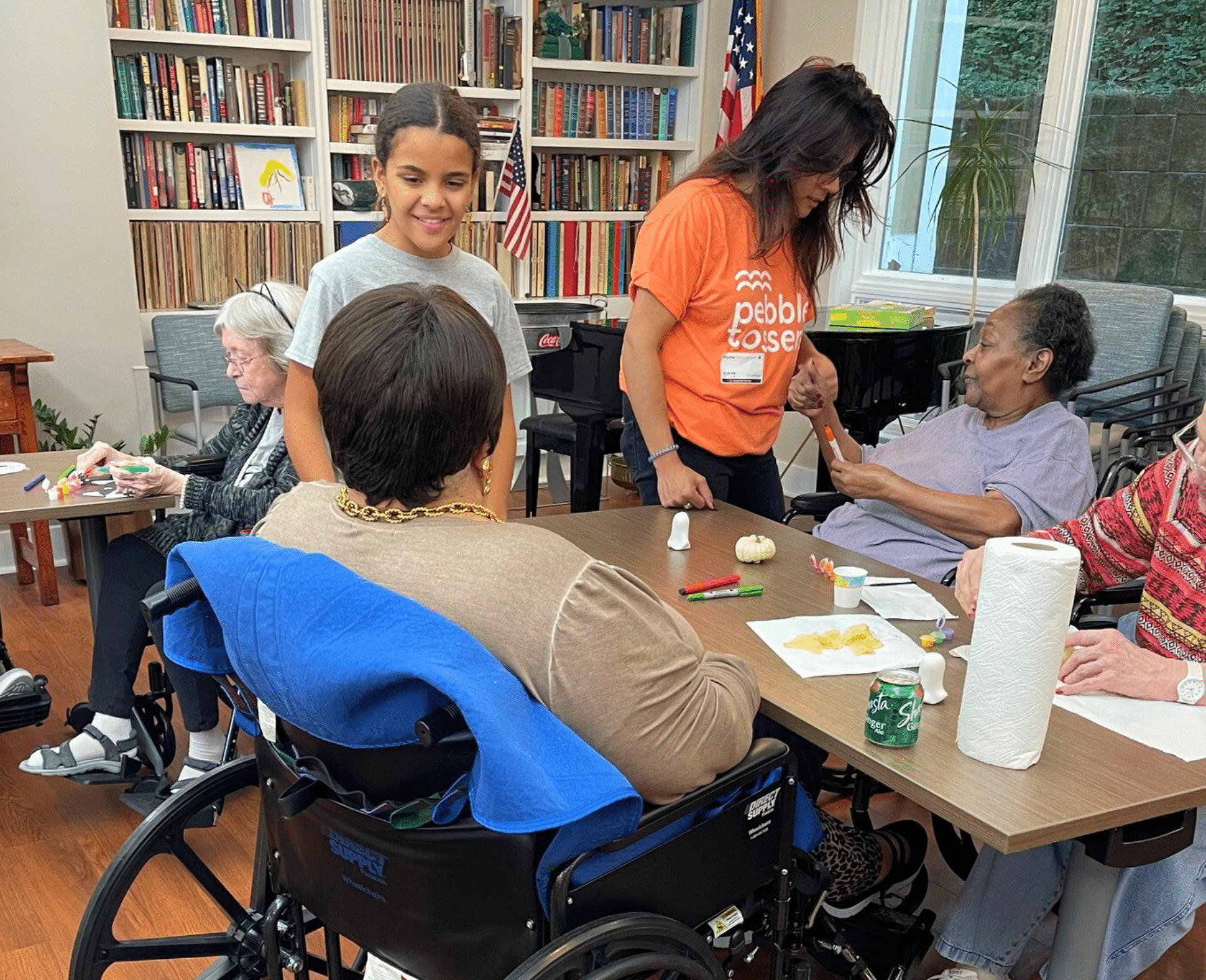
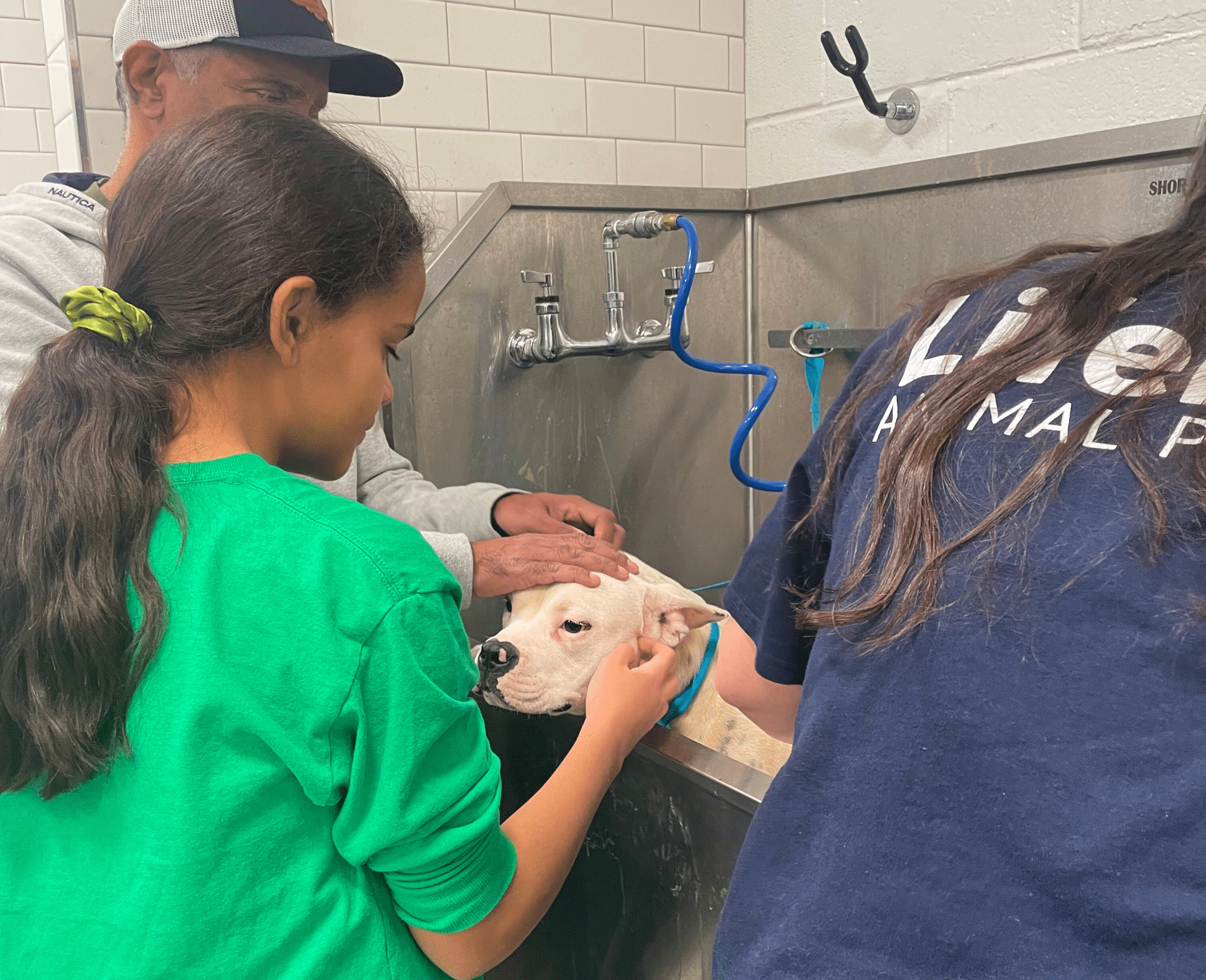
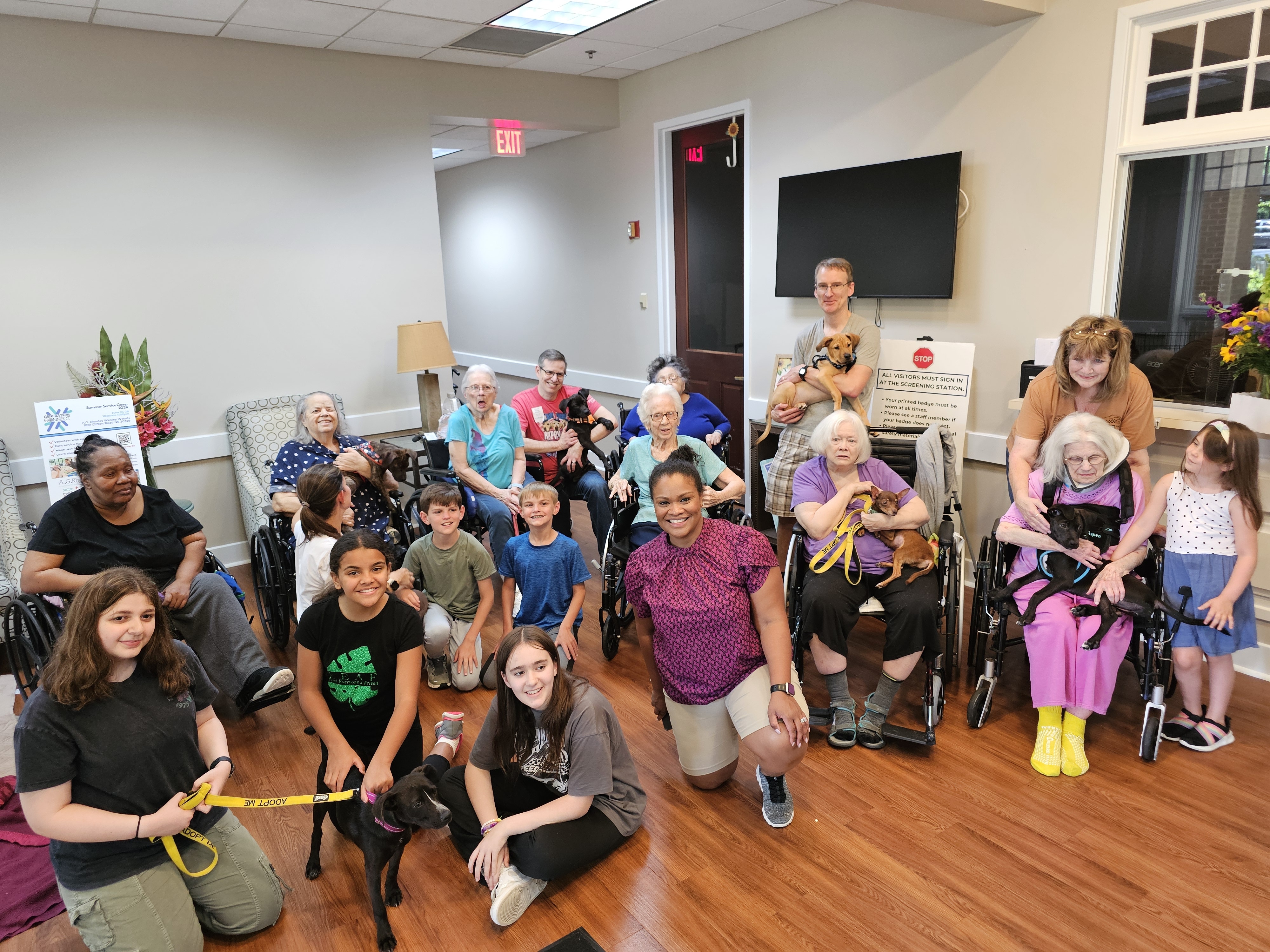
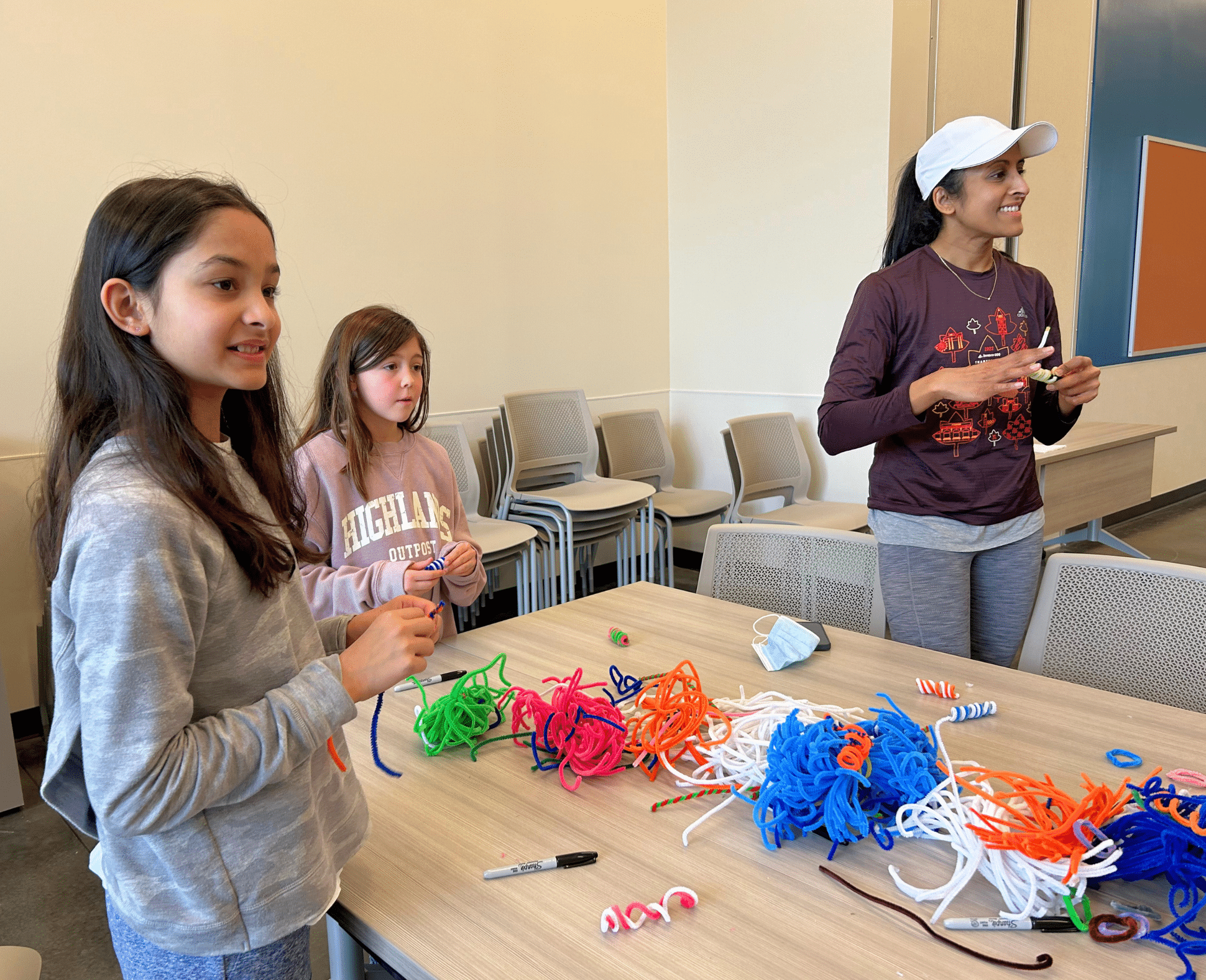 Discovering meaningful ways for families to connect while giving back to the community can be an uplifting journey. For the Sampat family, this adventure began with a heartfelt desire to engage in service projects together. Their first experience with family volunteering at Pebble Tossers started with a Corporate Day of Service. This meaningful experience ignited a passion for helping others that continues to grow. Inspired by their initial foray, they have become dedicated champions of service, showing that when families unite with a common purpose, they can make a profound impact on their community and inspire others to do the same!
Discovering meaningful ways for families to connect while giving back to the community can be an uplifting journey. For the Sampat family, this adventure began with a heartfelt desire to engage in service projects together. Their first experience with family volunteering at Pebble Tossers started with a Corporate Day of Service. This meaningful experience ignited a passion for helping others that continues to grow. Inspired by their initial foray, they have become dedicated champions of service, showing that when families unite with a common purpose, they can make a profound impact on their community and inspire others to do the same!